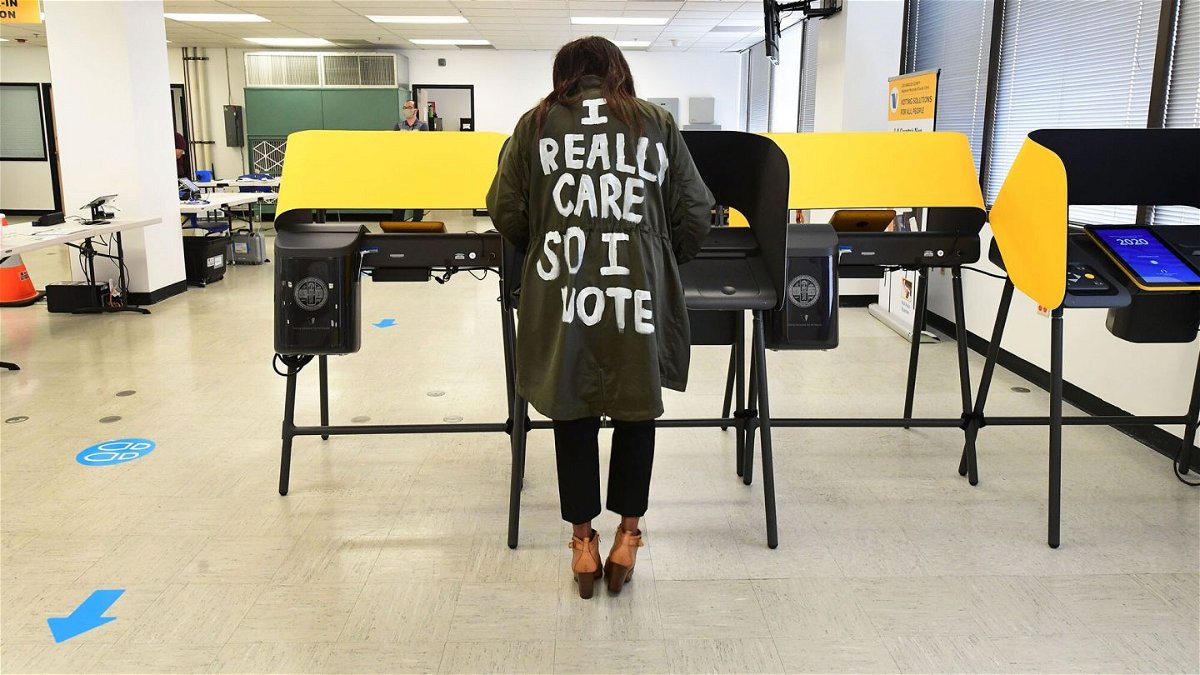In one swing state, 2016 election was linked with increased risk of irregular heartbeat, study says

By Jen Christensen, CNN
There’s little doubt the 2016 election was stressful. Now a team in North Carolina say they have evidence the tumultuous campaign may have affected people’s hearts.
Their study of 2,500 people living in the swing state of North Carolina shows an uptick in cases of irregular heart rates in October and November of 2016, as voters were inundated with attack ads.
In the two weeks before and four weeks after the 2016 election, researchers found a 77% increase in the risk of cardiac arrhythmia — a potentially dangerous irregular heartbeat — among people who had underlying heart conditions.
“American politics are stressful. I think for many Americans, the 2016 US presidential election in particular was very stressful, due to the unprecedented levels of anxiety, animosity, and partisan rhetoric throughout the campaign and the polarized reactions to the election results,” said Lindsey Rosman, an assistant professor of medicine in the Division of Cardiology at the University of North Carolina School of Medicine, who helped lead the research.
The study, published Thursday in the Journal of the American Heart Association, looked at data from nearly 2,500 people who had implanted cardiac devices such as a pacemaker or an implantable cardioverter-defibrillator, known as an ICD. A pacemaker is used to help control the heartbeat. An ICD is a device that monitors the heart rhythm and can deliver an electric shock to fix an abnormal rhythm.
The patients in the study came from two health centers in North Carolina, which was inundated with negative political ads and aggressive political campaigning between candidates Donald Trump and Hillary Clinton in 2016.
During the height of the election that November, nearly 2,700 arrhythmia events were recorded among more than 650 patients. That summer, when campaigning was less intense, there were little more than half the number of the events and among fewer patients.
It’s well known that stress and heart problems go hand in hand, but the authors of this study say this is the first to link a stressful election season to higher risk of arrhythmia. Rosman said earlier studies had seen similar stressful events like natural disasters or terrorist attacks trigger similar heart problems.
Rosman said the research team had hypothesized that the losing side would have more incidents. An earlier study, for example, showed that the stress fans feel when their team loses the Super Bowl can trigger fatal heart attacks.
But when researchers cross-referenced events with a person’s political affiliation and saw the number of heart problems was about the same for people in each party. Rosman said she’d like to see if the results would be uniform across party affiliation with a larger sample size.
The smaller sample size is one limitation of the study. All the participants also came from one state, so it is not a nationally representative sample. All the participants had also had prior heart problems and many were White men.
Dr. James Cireddu, a cardiologist with University Hospitals Cleveland Medical Center, said that while the study showed an increase in heart issues — and many could negatively impact someone’s life — the “scarier” heart issues that would require a shock from the ICD didn’t show up in this data.
“At least we didn’t see a clinically significant increase in those kind of events,” said Cireddu, who was not involved in the study. “If those were happening that would be even more concerning.”
He added that he would be interested in seeing this theory tested on a larger patient population. He also hopes researchers will expand the work to include younger and healthier people, perhaps by looking at data collected from wearables, like smartwatches, that monitor heart health.
Rosman and her colleagues said they plan to expand the study to look at nationwide data, and to take a closer look at the 2020 election.
Rosman hopes when people see the results of this study, they will be reminded that stress — even the stress of watching a highly contested election — can have serious and negative consequences for your health.
“Managing stress,” she said, “Is very important for all of us.”